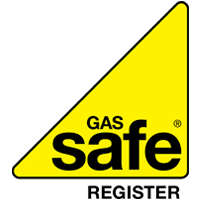- I don’t like the thought of having to keep refueling a fire, do you fit gas fires?
- I have already bought a stove, can you fit it?
- I have seen a stove elsewhere but it is not in any of your brochures, can you get it?
- How long do installations take?
- How often does my chimney need to be swept?
- Why do I need a chimney liner?
- Why is it important that I have a Carbon Monoxide alarm?
- I don’t have a chimney can i still have a stove?
- I live in a smoke controlled zone, can i still have a stove installed?
- What is HETAS?
- Are you HETAS registered?
I don’t like the thought of having to keep refueling a fire, do you fit gas fires?
I have already bought a stove, can you fit it?
Provided the stove is from a reputable retailer or brand we can provide a quotation for installation only, contact us for more information
Back to Index
I have seen a stove elsewhere but it is not in any of your brochures, can you get it?
Yes! we can order any stove, often at better prices than independent retailers, if you have seen one you like just let us know!
Back to Index
How long do installations take?
For most straight forward installations the time it takes to complete the job is usually 2 days, this will increase if there is more work involved, we can usually give you a good estimate of how long it will take when we have completed a (free) survey.
Back to Index
How often does my chimney need to be swept?
It is recommended that your chimney is swept every 6-12 months depending on usage. There is a high risk of chimney fires due to buildups in the liner if this isn’t done, it is also a good idea to have your stove serviced and checked over at least once per year, preferably before the winter so you can be sure it is safe to use before the cold weather comes and your stove is being used more frequently.
HETAS have provided a leaflet which has information about what fuel to burn and a handy safety checklist – you can see this here:
https://www.hetas.co.uk/wp-content/mediauploads/AFTERconsumer220118DIGITAL.pdf
Back to Index
Why do I need a chimney liner?
This is a question we get asked a lot, surely the chimney was ok when it was used as an open fire?
Chimneys are lined for a number of safety reasons. New chimneys may require relining to suit the fuel type being used (a gas flue liner may not be suitable for other fuels). Chimney systems that predate 1965 will often require a modern lining solution for the following reasons:
- The flue may have lost integrity and can leak smoke into rooms or other part of the building
- Condensates or tar can seep through chimney walls causing staining, inside or outside of the building
- Lining with insulation included can improve the operation of the appliance and flue – particularity important when the chimney is situated on an external wall
- Defective flue systems may be eroded and rough. Thus will cause frictional resistance to the flow of the gases resulting in poor up-draught
- Large flues over 200mm, particularly ones containing voids, may affect appliance performance. Some appliance manufacturers specify smaller flues for efficient operation
Back to Index
Why is it important that I have a Carbon Monoxide alarm?
Carbon Monoxide (CO) is an extremely poisonous gas that can be present in the fumes from the combustion of fuel’s which aren’t burnt under the correct conditions. Fuels such as gas, oil, solid mineral fuel and biomass all have the potential to emit CO. The gas cannot be seen, smelled or tasted making it difficult to detect.

Protect yourself from CO
- Have your appliance serviced and cleaned regularly by a HETAS Registered Installer.
- Ensure your chimney is kept clear by having it swept at frequent intervals
- Use quality fuel in your solid fuel/wood burning appliance.
- Make sure the installation complies with Building Regulations guidance. The guidance is there to protect you.
- Fit an audible CO alarm conforming to BS EN 50291 and positioned in accordance with Building Regulations Approved Document J.
CO alarms should be regularly tested in accordance with the manufacturers instructions and should not be regarded as a substitute for regular maintenance of both the appliance and chimney.
Click the link to see a consumer Co2 advice leaflet provided by HETAS:
https://www.hetas.co.uk/wp-content/mediauploads/COconsumer220118DIGITAL.pdf
Back to Index
I don’t have a chimney can i still have a stove?
A popular choice for rooms or properties that don’t have a chimney is a twin wall system which can either be routed out of a wall or upwards through the roof. It can be left as a stand alone unit as a feature with a tiled back or a false chimney breast with an opening can be built, this could contain cut outs for a tv, shelving or for storing logs if desired.
Back to Index
I live in a smoke controlled zone, can i still have a stove installed?
Yes! as long as your stove is DEFRA approved, it is designed for use in smokeless zones. you can find out more here: https://www.gov.uk/smoke-control-area-rules
Back to Index
What is HETAS?
HETAS is the official body recognised by government to approve biomass and solid fuel domestic heating appliances, fuels and services, including the registration of competent installers and servicing businesses.
Customers using a HETAS registered installer in England and Wales will be given a HETAS Certificate of Compliance (Building Regulation Compliance Certificate) by the installer on the completion of installation work or through the post if the installer notifies the installation online. This is of vital importance in demonstrating that the installation was carried out by a competent installer working for a HETAS registered business and complies with the relevant Building Regulations.
The information on the certificate is used to record your installation, and in England & Wales it is used to notify your Local Authority Building Control Department (LABC) of the work that was undertaken. This ‘self certification’ by competent registered installers takes the place of a Local Authority Building Notice which could cost you a significant amount of money, this can vary by region and the cost of the work being carried out.
The HETAS installer is charged a small fee by HETAS for this service, but much less than the charges incurred if you seek a Building Notice via the Local Authority. The information can be required to validate household insurance and will be required by Solicitors in any home selling process. Failure to notify the Local Authority can be an offence resulting in enforcement action being taken against the Householders and/or the installer; this could cost anything up to £5000. Regulations and certification vary by regions, consumers in Scotland, Northern Ireland, Republic of Ireland and Isle of Man should contact their relevant Local Authority prior to commencing any installation work as HETAS installers cannot self-certificate their work in these regions.
The HETAS Certificate of Compliance (Building Regulation Compliance Certificate) must be completed and signed only by the HETAS registered installer who undertook the work. The white copy of the fully completed and signed Certificate must be returned to HETAS at the address shown at the bottom of the Certificate within 7 days of the completion date of the works. HETAS will then process the information provided on the Certificate for submission to the relevant Local Authority within 30 days of the completion of the works as required by the Building Regulations (a legal requirement). When the HETAS Registered Installer notifies an installation online a HETAS Certificate of Compliance (Building Regulation Compliance Certificate) will be posted directly to the householder via HETAS.
If the Building Regulation Compliance Certificate is not provided, is not completed correctly or the Certificate is returned late then there will be no notification of the work to the Local Authority by HETAS. This would in fact mean that the law has not been complied with and can cause difficulties when selling a property and potentially void a household insurance policy. If you have not received a Building Regulation Compliance Certificate within a period of 30 days following an installation, please follow the HETAS Complaints Policy.
Where a hearth, fireplace, flue or chimney is provided as part of the work information essential to the correct application and use of these facilities should be permanently posted in the building. A way of meeting this requirement is for the installer to provide a Notice (or Data) plate. In addition customers should also receive an operating manual for the appliance that has been installed. Many operating manuals for HETAS-approved appliances can be found on the HETAS website.
Consumers using a HETAS registered installer:
- can be safe in the knowledge that their installer has been trained and assessed to carry out compliant work;
- will save both time and money and ensure your appliance works safely and efficiently;
- receive a certificate of compliance for the installation; and
- have the ability to choose a range of installations covered by the scheme including biomass boiler systems, dry appliances, appliances with boilers, hot water and heating systems along with re-lining chimneys.
Back to Index
Are you HETAS registered?
Yes! Our registered installer number is 7704 you can check this here: https://www.hetas.co.uk/business/?regid=&businessname=warm+home+stove+installations
Back to Index


